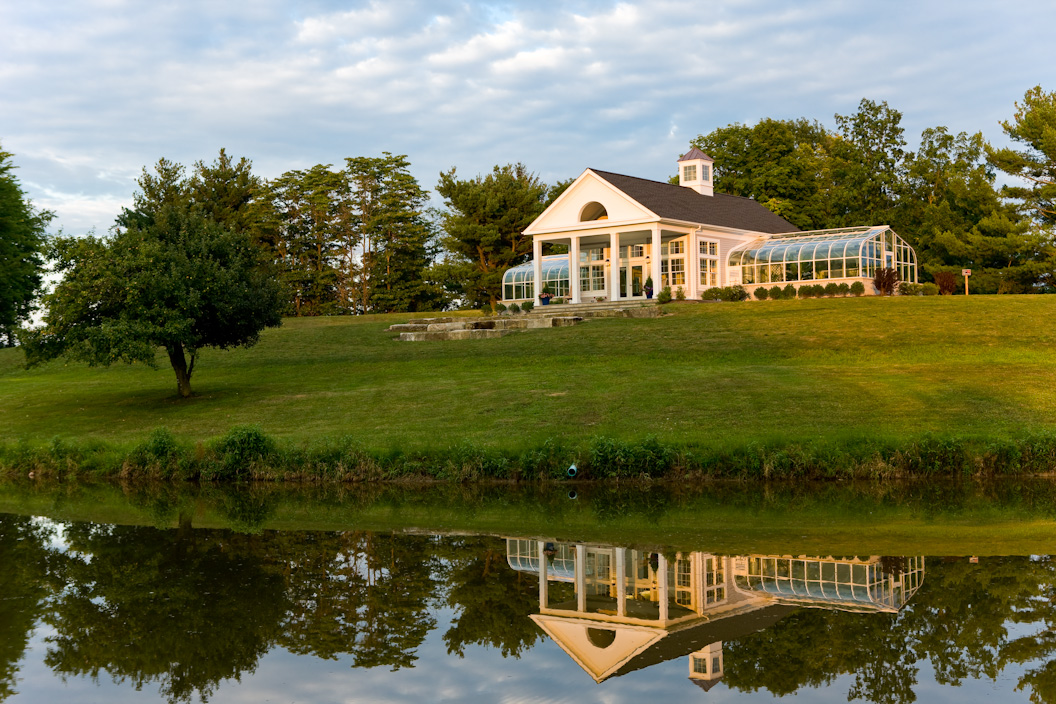Tax Senior
...be aware of the tax credits and consequences of renting out your home
The countdown clock has begun for the opening of the Republican National Convention. It is estimated that 50,000 people will descend upon Cleveland in July of 2016, spending an estimated $200 Million on everything from political paraphernalia to Parma pierogis. With so many people coming to the city, hotels will be hard-pressed to accommodate such a large influx of visitors over a short period of time. However, this may present an opportunity for you to be an Airbnb host. 
What is Airbnb? Airbnb is a relatively new online marketplace that enables people to rent out lodging for periods ranging from just a few days to up to a month. With the advent of this marketplace, travelers now have more travel accommodation options available to them than ever before. Accommodations available on the site have included apartments, houses, castles, treehouses, and boats. If you plan to take advantage of this opportunity to become an Airbnb site, it’s important to understand the tax reporting requirements related to that activity.
- If you rent out all or part of your home or apartment for less than 15 days during the year, all of the rental income you receive is tax-free and does not need to be reported on your tax return. To qualify for this treatment, the home or apartment must be used personally for more than 14 days or 10% of the total days the home is rented to others at a fair rental price. It should be noted that the 10% calculation does not take days the property was vacant into account, including days the owner spends principally on repairs and maintenance.
- In addition, there are strict limitations in place to ensure that you don’t deduct any personal expenses. You are allowed to deduct 100% of your direct rental expenses, subject to the limitation mentioned above. These are expenses that apply only to renting the property, such as fees or commissions you pay to the rental agency (such as Airbnb), advertising, credit checks, insurance (for the rental period only), cleaning costs, repairs (solely for the rental portion of your home), and depreciation (limited to the rental portion of the home). You may also deduct a portion of your general expenses to own and operate your entire home, such as mortgage interest and real estate taxes, utilities, insurance, cleaning expenses, repairs, landscaping, and other home maintenance expenses. You must allocate the deduction for these general expenses based on the amount of time the property served as a rental, compared to the total time it was used during the year.
- If you continue to occupy the home or apartment while you rent out a room, you won’t have an issue with meeting the personal use requirement. Personal use includes all days the property was used by the owner, certain family members, and any party that was charged less than fair market rental rates. If you rent out the entire space, you’ll have to make sure to keep track of the number of days the home is rented and how many days you utilize the home personally. This tax break is often referred to as the “Masters exemption” because of its popularity in Augusta, Georgia, where it is utilized heavily for the golf tournament of the same name. If you fall under this exemption, you may exclude the rental income you collect and include 100% of the qualified residence interest expense and real property taxes as deductions on Schedule A. However, you will not be able to take any other deductions resulting from operating expenses related to the rental period. With the increase in use of this exemption and the popularity of services such as Airbnb, there has also been an increase in the number of computer-generated tax notices due to conflicting tax reporting. This generally results from the issuance of 1099 tax forms by the service companies who facilitate the rental being sent to the taxpayer/landlord, and the taxpayer/landlord not reporting the rental income on their tax return. The IRS has yet to address this issue, and Airbnb is standing by its conservative approach of filing 1099’s regardless of the term of the rental. You may attach a statement claiming the exemption to your tax return, but this may not always prevent a tax assessment notice from being sent by the IRS. The best practice is to maintain detailed records in the event you must respond to such a notice, should you meet the tax-free rental treatment.
- If you rent your main residence, house, or apartment for more than 14 days during the year, and live in it 15 days or more, you won’t qualify for tax-free treatment. In this case, you’ll fall under Section 280A of the Internal Revenue Code (IRC), the code section covering the rental of vacation homes. You’ll have to report and pay income tax on your net rental income by filing Schedule E with your individual tax return. You will be permitted to offset the rental income received by the expenses associated with renting your home, not to exceed the rental income reported for the year. Thus, in this case, you will be able to bring your net rental income down to zero, but you won’t be permitted to deduct a net loss from the rental activity.
- If instead of renting your entire home, you rent out only a room or several rooms, you can only deduct these general expenses in proportion to the portion of the home rented. For example, assume you rent out your property for 37 days during the year. The property would be considered a rental for 10% (37 ÷ 365 = 10%) of the year. Therefore, you would be able to deduct 10% of your general expenses and all of your direct expenses, up to the amount of rental income earned during the year.
There are also steps you should take to make sure that your short-term rental is not reclassified as a bed and breakfast or a hotel.
- The IRS may reclassify your short-term rental as such if you dedicate rooms solely for rental and provide substantial services for your guests’ convenience during their stay. You would then be subjected to both federal income and self-employment tax on any profit you report.
To mitigate this, avoid providing guests with substantial services during their stay, such as breakfast, laundry, or daily room cleaning. Also, charging a separate cleaning fee to your guests at the end of their stay will help to solidify your position as a short-term rental.





